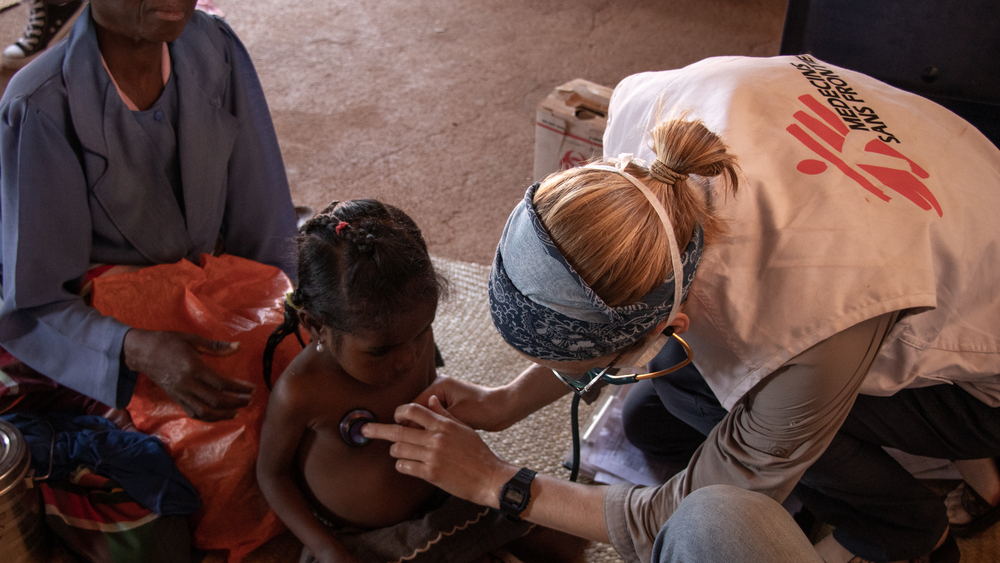Madagascar: without Entry Visas, MSF activities risk being stopped, during a food crisis
Aid workers will be unable to continue treating thousands of children malnourished
Médecins Sans Frontières (MSF) will be forced to stop its medical activities within three weeks at a time of an exceptional, severe food and nutrition crisis in southern Madagascar because international staff are being denied entry visas. Since March, MSF provided critical medical care to 6,000 malnourished children across 20 localities in Amboasary and Ambovombe districts. MSF asks the Malagasy authorities to urgently grant entry visas and not put at risk the closure of these medical activities which employ 150 Malagasy staff.
A historic drought and sandstorms have affected agriculture and the collateral effects of COVID-19 on the socio-economic structure have added to the chronic food fragility and underdevelopment in the South. These factors have plunged the region into a catastrophic humanitarian situation since late 2020. In response, government agencies and humanitarian organizations, including MSF, increased its assistance to address acute malnutrition and increase emergency food aid for the 1.3 million people affected.
Even though Madagascar had closed its borders since March 2020 to control the spread of COVID-19 into the country, MSF received special authorizations to bring in aid workers and resources to continue its medical humanitarian work –which has been the case in many other countries facing acute crises around the world. MSF international staff was granted ‘non-renewable, three-month visas’. With the threat of the Delta variant, since July, the government is no longer granting MSF special access for aid workers, so without human resources MSF will not be able to maintain its activities.
“Travel restrictions related to the COVID-19 pandemic should not prevent relief organizations like MSF from responding to other equally high priority crises,” said Bérengère Guais, MSF Emergency Manager. “As a medical organization, we understand the importance of prevention and control measures for COVID-19. We have put in place strict safety protocols for our staff and patients. This includes the systematic vaccination of all international staff working in Madagascar.”
MSF has not received answers from the highest levels of the Malagasy administration to its 12 requests for entry visa for new doctors, nurses, and other personnel. "Ten of our international staff will be leaving the country in two days as their visas will expire. The other 12 staff will have to leave in three weeks,” explains Guais.
Since the end of March, MSF mobile clinics have been criss-crossing the districts of Amboasary and Ambovombe, among the hardest hit areas in Madagascar, to treat malnourished children and distribute food rations in some 20 localities. The teams have been visiting particularly remote and impoverished villages and responding to alerts sent by local health authorities. 300 tons of food have already been distributed, and another 750 tons are expected to be distributed by October. In addition to the ongoing water distribution to 30,000 people, new wells and boreholes are planned. About 100 patients were hospitalized in June and July in a dedicated facility built and managed by MSF within the Ambovombe Hospital. This intensive treatment center for malnutrition has already closed.
If MSF is not granted new entry visas all projects will have to close and MSF will be forced to terminate the contracts of more than 150 Malagasy staff currently working to implement its emergency operations.
